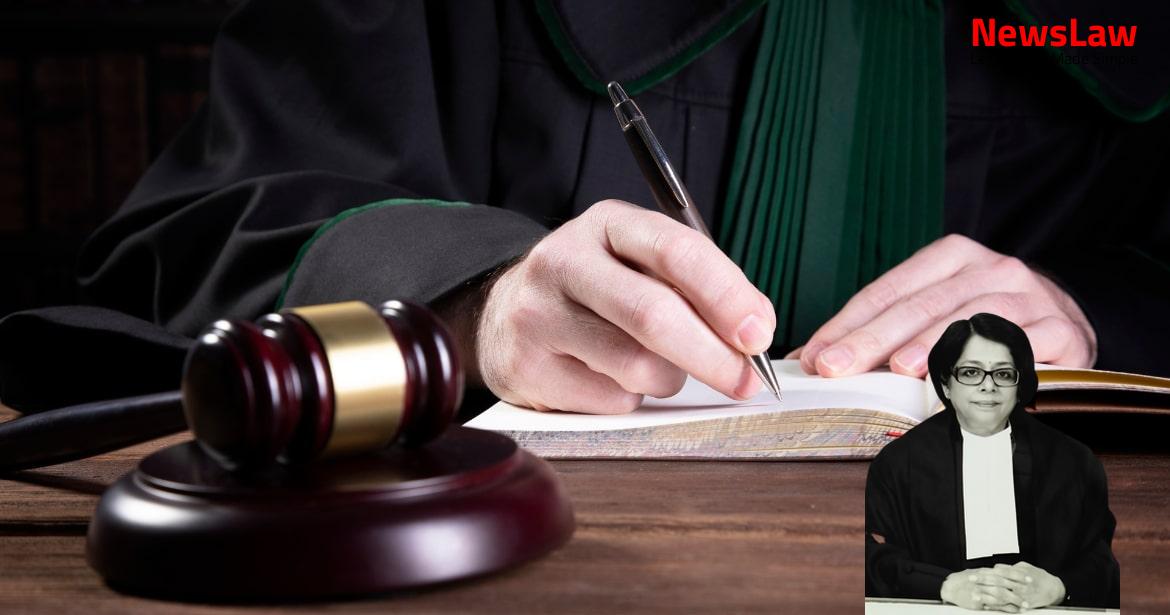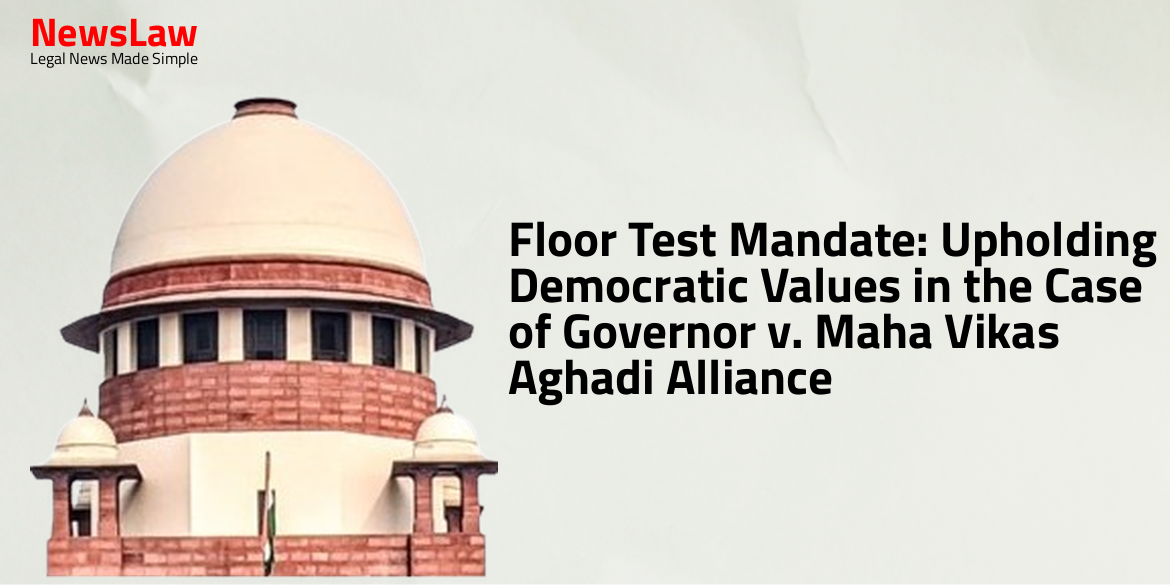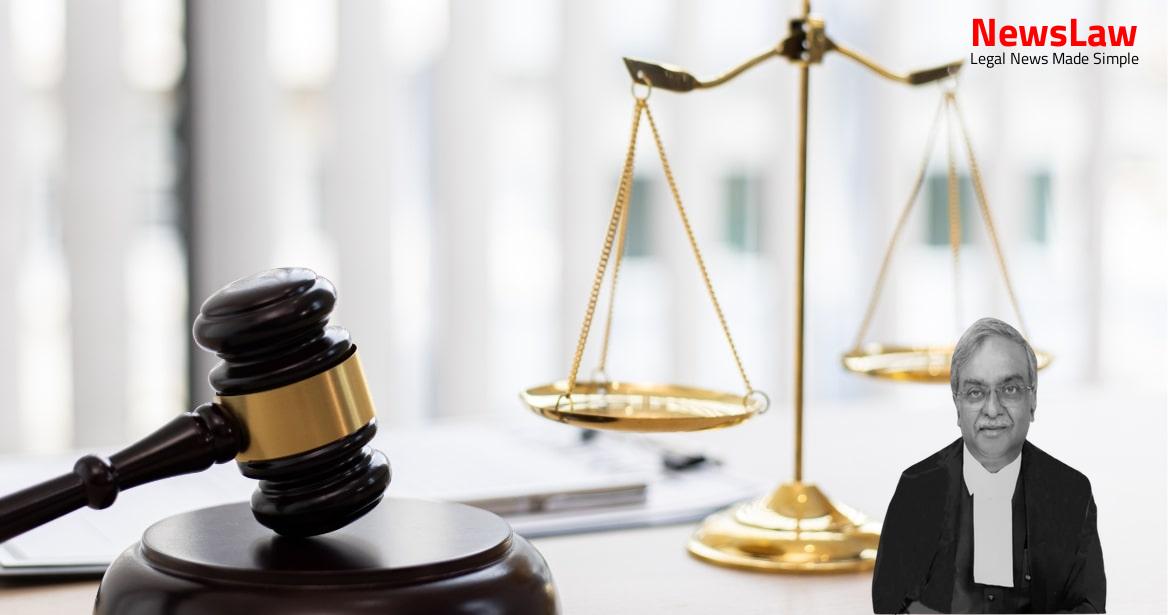In a recent judgement by the Supreme Court of India, the case of TRF Limited vs. [Respondent’s Name] addressed the contentious issue of the appointment of an arbitrator. The dispute arose from the failure of the Chairman and Managing Director to appoint a sole arbitrator within the stipulated time frame, leading to a wrongful appointment by the Chief General Manager. Follow along for insights into this important legal battle.
Facts
- The 30-day time period for appointment of a sole arbitrator expired on 28 July, 2019.
- The CMD of the respondent failed to appoint a sole arbitrator or respond to the letter dated 28 June, 2019.
- The Chief General Manager of the respondent wrongfully appointed Major General K.T. Gajria as the sole arbitrator.
- No appointment of an arbitrator was made within thirty days as required by the contract.
- The affidavit-in-reply filed by the respondent denies all material allegations.
- The application highlights the failure of the CMD to appoint a sole arbitrator and the subsequent wrongful appointment by the Chief General Manager.
Arguments
- The petitioner’s argument is based on the appointment process of Major General K.T. Gajria being in accordance with the contract’s Clause 24.
- It is asserted that the appointment was not illegal and did not require an application under Section 11(6) of the Arbitration Act.
- The petitioner claims that the arbitration in this case does not fall under the definition of International Commercial Arbitration.
- The petitioner’s counsel argued that the respondent failed to fulfill their obligations under Clause 24, giving the petitioners the right to request the court for an arbitrator.
- The appointment process in Clause 24, vested complete discretion in the Chairman and Managing Director of the respondent, compromising impartiality.
- Citing legal precedents like Walter Bau AG and others, the petitioner seeks the court to appoint an arbitrator due to the lack of impartiality in the respondent’s appointment process.
- Requisition dated 28.06.2019 expired on Friday and the appointment was made on the first available working day.
- Infirmities were raised for over-stepping the 30-day limit and the appointment not being made by the Chairman and Managing Director.
- Ineligibility cannot extend to a nominee if not from the Corporation with appropriate disclosure.
- Declaration for Lead Member of the Consortium was submitted as per bid documents and RFP requirements.
- Reference to the case of L&T SCOMI Engineering v. Mumbai Metropolitan Region Development Authority to establish that the arbitration is an International Commercial Arbitration.
- No sufficient case presented to maintain the current application as per Mr. Guru Krishna Kumar, learned Senior Advocate.
- Applicants relied on the Consortium Agreement between the Applicant No.1 and Applicant No.2, designating Applicant No.1 as the lead member.
- Clause in the Agreement outlined the role of Perkins Eastman as the focal point for the agreement and interaction with the client.
- Appointment was conveyed by the Chief General Manager but actually made by the Chairman and Managing Director dispelling alleged infirmities.
- Dispute on whether the arbitration is an International Commercial Arbitration, determining the jurisdiction of the Court under Section 11(6) read with Section 11(12)(a) of the Act.
- Contentions in the application highlighted the failure of the Chairman and Managing Director to appoint the sole arbitrator within 30 days, and the purported appointment by the Chief General Manager on 30.07.2019.
Also Read: CRPF Act: Validity of Rule 27 for Compulsory Retirement – Case of Head Constable vs. CRPF
Analysis
- Clause (d) of the agreement provides for sole arbitration of any dispute between the parties, to be conducted by the Managing Director of the buyer or his nominee.
- The appellant in the TRF Limited case argued that the Managing Director of the respondent, as per the amended Act, would be ineligible to act as an arbitrator due to direct interest in the dispute.
- The submission was countered by the respondent, stating that the eligibility of an arbitrator is determined by the Fifth and Seventh Schedules which assess impartiality and independence.
- The scope of Section 11 of the Act outlines the appointment procedure for arbitrators depending on the arbitration agreement.
- Failure to appoint an arbitrator within the specified time frames can lead to the involvement of the Chief Justice or his designate as per different subsections of Section 11.
- The case involved a Consortium of Larsen and Toubro Limited and SCOMI Engineering BHD for a project related dispute.
- The Indian company and the Malaysian company, though part of a Consortium, were jointly and severally liable to the employer.
- Claims made by the Consortium were rejected by the employer multiple times, clearing the path for arbitration.
- The Consortium was considered as an unincorporated association under Section 2(1)(f)(iii) of the Act.
- The central management and control of the Consortium were seen as being exercised in India, not in a foreign country.
- Due to this, the petition to the Court under Section 11 of the Act for ‘international commercial arbitration’ was dismissed.
- The appointment of an arbitrator by the respondent Corporation did not adhere to the agreed procedure involving ICADR, making the appointment invalid.
- The Court emphasized the importance of impartial and independent arbitrators as highlighted by the Law Commission.
- The lead member of the Consortium was declared to be the Indian company in this case, affecting the appointment of arbitrators and decision-making.
- To avoid bias and ensure fairness, it was crucial to have an unbiased appointment of arbitrators as per the Act and the agreed procedures.
- Appointment of an arbitrator is a contractual relationship and source of appointment is from the agreement between parties.
- An arbitrator, even if appointed in terms of a contract, must remain independent and impartial during arbitration.
- The principle of ‘qui facit per alium facit per se’ is applied, meaning actions done through another are considered as being done by oneself.
- The balance between procedural fairness and binding nature of contracts leans towards the latter, emphasizing the need for impartiality and independence in arbitration.
- If an ineligible arbitrator nominates an arbitrator, it is equivalent to conducting the arbitration by oneself.
- The concept of party autonomy cannot override the necessity for impartial and independent adjudicators.
- Impartiality is a subjective concept compared to independence, requiring careful consideration throughout the arbitration process.
- The duty to appoint an impartial arbitrator is more crucial in government contracts where a public sector entity is involved.
- The choice of an arbitrator should not compromise the principles of impartiality and independence at any stage of arbitration.
- The appointment of an arbitrator can have significant legal implications, as evident from various judicial precedents.
- No special qualifications are required of an arbitrator in this case.
- The matter was argued and considered purely from a legal perspective.
- Legal perspective was the main focus of discussion.
- The application by the Applicants is permissible.
- No suggestions were made regarding the need for technical expertise.
Also Read: DAMEPL vs. DMRC: Curative Petition and Arbitral Award Restoration
Decision
- Dr. Justice A.K. Sikri, former Judge of the Court, appointed as sole arbitrator
- Disputes arising from Agreement dated 22.05.2017 to be decided by the arbitrator
- Appointment subject to declaration of independence, impartiality, and ability to complete arbitration within specified time
- Application accepted, effect of respondent’s letter dated 30.07.2019 annulled
- Fees and expenses to be shared equally by the parties
- Arbitrator entitled to charge fees as per Fourth Schedule to the Act
Case Title: PERKINS EASTMAN ARCHITECTS DPC Vs. HSCC (INDIA) LIMITED
Case Number: ARBIT.CASE(C) No.-000032 / 2019



